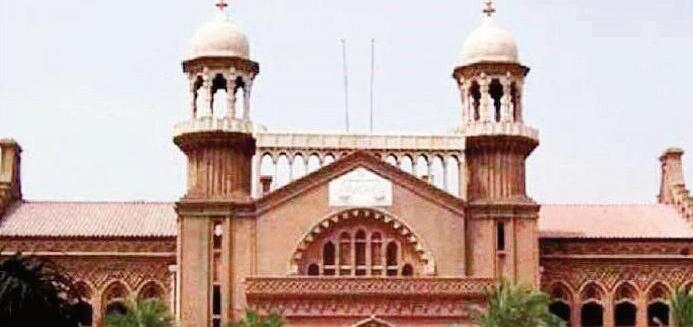
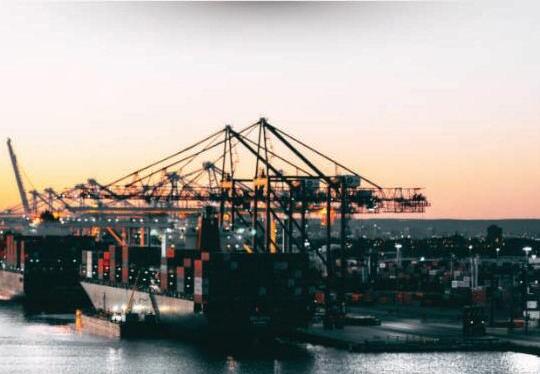
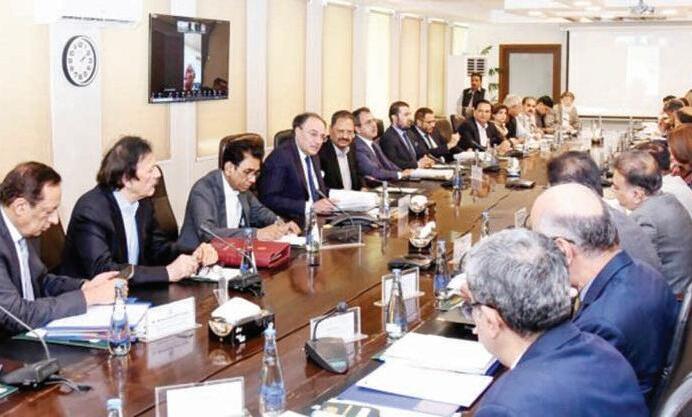

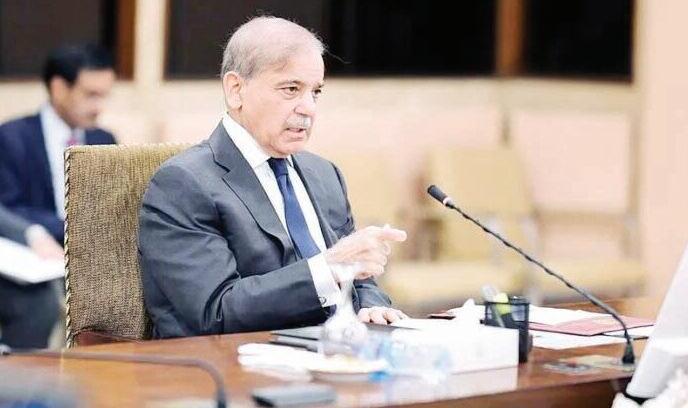
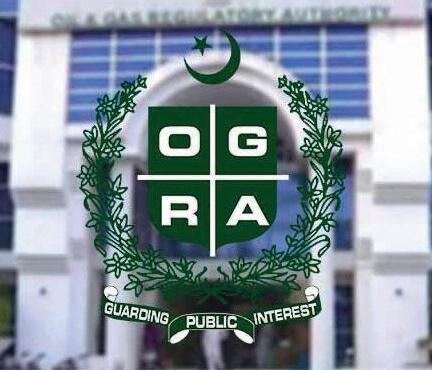
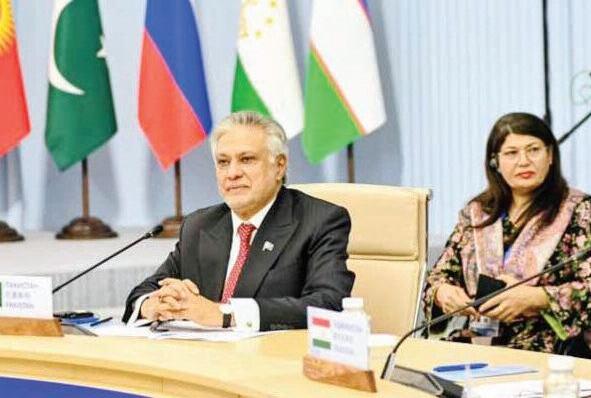











The Economic Coordination Committee (ECC) of the Federal Cabinet has once again urged fertiliser manufacturers to pay over Rs450 billion in outstanding dues from the long-pending Gas Infrastructure Development Cess (GIDC) collected from farmers The Express Tribune
would be managed, how companies would be persuaded to settle outstanding GIDC and what steps would be taken if firms failed to honour their price-stability commitments The GIDC was imposed to fund major pipeline projects, and the Supreme Court had directed all sectors to clear their liabilities in instalments


IT exports in FY26 However, projections suggest more conservative growth of 18-20% leading to an estimated $4 5 billion in total exports by the end of the fiscal year up from $3 8 billion in FY25 As part of the Uraan Pakistan national economic plan, the government aims to achieve $10 billion in IT exports by FY29, with a compound annual growth rate (CAGR) of 27% Analysts attribute October s robust growth to several factors including an expanding global client base, particularly in the Gulf Coop-
eration Council (GCC) region Additionally, supportive government measures have played a key role such as the State Bank of Pakistan s (SBP) decision to relax the retention limit for Exporters Specialised Foreign Currency Accounts (ESFCAs) from 35% to 50% The introduction of equity investment abroad through these accounts has also provided a boost The stability of the Pakistani rupee has encouraged IT firms to repatriate a larger portion of their profits According to a survey by the Pakistan Software Houses Association (P@SHA), 62% of IT companies are

chaired the session Representatives from the Punjab Press Gallery Committee, Punjab Union of Journalists, and Photojournalists Association also joined, along with members of the Malik family Shami while recalling his long association with Zahid Malik said Malik carried himself with the quiet resolve of a public servant who had transitioned into journalism with purpose He noted that Malik first experimented with weekly publica-
tions before establishing Pakistan Observer, reviving the name after the fall of Dhaka when the original paper there took a new identity According to Shami Malik eventually became something of an Islamabad counterpart to the late Majid Nizami founding the Nazria Pakistan Council much like Nizami had established the Nazria Pakistan Trust in Lahore
He highlighted Malik’s vigorous defence of Dr Abdul Qadeer Khan his consistent engagement with national political developments and his remarkable relationships with diplomats and foreign leaders Shami said Malik helped fortify Pakistan–China ties and shaped a generation of journalists through a firm yet gentle professional ethos Faisal Zahid Malik offered a personal and historical portrait of his father, tracing his career from the days of President Ayub Khan through the eras of Zulfikar Ali Bhutto and General Zia-ul-Haq He said his father ’s early work at Nawa-i-Waqt led him eventually to launch his own publications including Hurmat and later Pakistan Observer, at a time when the capital lacked an English-language daily after the closure of The Muslim He spoke about his father ’s unwavering commitment to Kashmir
and Palestine, and recalled the controversies that surrounded his writings on Pakistan’s nuclear programme Faisal said Zahid Malik faced legal pressure under the Official Secrets Act and endured arrest but refused to compromise on journalistic integrity He also narrated episodes from the Musharraf period when Zahid Malik s book
Debriefing of Dr Qadeer triggered intense political backlash Faisal described his father ’s religious scholarship including the project Mazameen-e-Quran and its multiple translations The work earned praise from former President Mamnoon Hussain, who regarded it as a service typically expected from state institutions Faisal added that ambassadors from various countries publicly engaged with that project an unusual moment of diplomatic participation in a religious initiative


TH E turbulence of politics in AJK may be seen from the fact that the AJK Legislative Assembly has elected on Monday the fourth Prime Minister of AJK since it came into existence since the 2021 election It is worth noting that the AJK since 1985 has run to its full five year term except when the new PM’s father Raja Mumtaz Hussain Rathore dissolved virtually at the beginning of tenure after the Pakistan government, of Benazir Bhutto, was dissolved by President Ghulam Ishaq Khan and the next election was won by the Muslim Conference with Sardar Abdul Qayyum, becoming Prime Minister Since 195, the story of AJK politics seems to have been one of the ruling party Islamabad winning the AJK election Perhaps one reason for this is that the AJK government is not solely meant to be provincial government for AJK, but acts to enable the Free State to act as a base camp for the freedom of the whole of Jammu and Kashmir Secondly apart from the natural desire of the federal government to control AJK, the AJK electorate wants a government more in line with Islamabad rather than one perpetually sniping at it At the same time there has generally been little sniping AJK PMs elected while their party held office in Islamabad have learnt of late to live with the Pakistani government when it changed stripe
A destabilizing factor has been the PTI, which formed the government after the 2021 election, but which itself saw Ch Tanveer Iyas replace Sardar Abdul Qayyum Niazi When Imran was ousted so was Ch Ilyas, and the PTI parliamentary party split, with one of its members, Ch Anwarul Haq, the PM with the support of the PML and the PPP
However now Faisal Rathore has come to office He is not the first PM s son to have become PM, the first being Sardar Atique Ahmad, the son of Sardar Abdul Qayyum Faisal Rathore does not have a long tenure ahead of him with elections due next year His ascension further marks the generational turnover in Pakistani politics Perhaps more important will be how he plays a role in the liberation of Indian Occupied Kashmir He should not forget that is an important aspiration for the people of AJK As PPP general secretary, as some imbued with the PPP spirit, he would remember PPP founder Zulfikar Ali Bhutto’s vow to liberate Kashmir even if it meant fighting for a thousand years

Dedicated to the legac y of late Hameed Nizami Arif Nizami (Late) Founding Editor
M A Niazi Editor Pakistan Today Babar Nizami Editor Profit
IN today’s Pakistan a pixel is no longer just a dot on a screen; it is a weapon a witness and a whisper in the vast chorus of digital narratives
From memes that lampoon political figures to TikTok clips that spark civic discourse, Pakistan’s digital landscape has become a shifting terrain of stories; crafted, distorted, amplified, and suppressed It is worth examining how narrative building and amplification are transforming online ecosystems in Pakistan and how a structured media and information literacy program integrated into the education system, offers a meaningful, evidence-informed response to these challenges
Narratives are no longer spun through long manifestos but built frame by frame A protest snapshot in Gwadar a blurred clip of a political aide being detained or a meme likening one leader to a lion and another to a tiger these pixel fragments carry powerful symbols that resonate emotionally and ideologically Digital platforms like X, TikTok, and YouTube serve as dynamic canvases for such visual storytelling As scholars such as Hassan Khali have observed these platforms enable actors “to disseminate their narratives mobilize supporters and cultivate fear and self-censorship
Narrative construction in Pakistan is often strategically engineered Political parties deploy digital squads, sometimes leveraging bots or inauthentic accounts, to amplify narratives or delegitimize opponents The PTI’s rise for instance was not only a result of political messaging but also a careful curation of memes catchy hashtags and influencer content visual building blocks packaged for virality The PMLN, in turn, cultivated its own counter-narrative emphasizing electoral legitimacy and stability, shared via Facebook and YouTube influencers
This digital arms race is not without cost As Babar Farooq; Nazia Malik AND Saira Siddiqui noted in a paper the use of bots and fake accounts to amplify narratives and suppress dissent has fueled polarisation and eroded trust in digital platforms Algorithmic amplification compounds the problem Platforms reward provocative content, outrage and drama generate engagement Muhammad Yaseen Moroojo explains that “algorithmic systems amplify certain political narratives while suppressing others ” reinforcing echo chambers and favoring traction over truth
During periods of political transition such as the 2022, a flood of viral content depicting institutions in contentious ways blurred facts and emotions in the public discourse Emotional captions and visuals created powerful narratives, not always grounded in accuracy Digital provocation once confined to late-night
National Policy for Development and Empowerment of Women (2002) highlight strategies to create enabling environments where women can fully exercise their rights and capabilities Key government programmes like the BISP and the National Rural Support Programme focus on economic empowerment and social inclusion Progress has been seen in women s education, political participation with reserved seats in assemblies, and increased workforce involvement though challenges like genderbased violence and societal conservatism remain Specific initiatives include land ownership rights for women establishment of daycare centres for working mothers women s crisis centres, and working women hostels Legal protections like the Harassment Act are actively being implemented with helplines and institutional mechanisms to protect women’s rights Gender mainstreaming policies ensure integration of women s issues into broader economic and social development plans Regarding recent policies by the Government of Punjab, the province has introduced progressive steps aimed at enhancing women’s empowerment comprehensively These include expanding occupational and technical training for skill development promoting women entrepreneurship through financial support programs creating women-friendly workplaces, and improving access to healthcare services Punjab also focuses on enhancing women’s safety through the establishment of women’s police stations and crisis centers Efforts to increase women’s participation in local governance and decision-making bodies have been prioritized alongside campaigns to raise awareness about gender equality and combat violence against women Women empowerment in Pakistan involves a multi-dimensional approach aimed at overcoming socio-cultural economic and political barriers faced by women Key components include enhancing access to education healthcare legal rights economic opportunities political participation, and social inclusion The federal government, provincial authorities, NGOs, and international partners collaborate to implement diverse programs such as the BISP, and the NRSP and various vocational training initia-
satire or print cartoons, is now instantaneous and widespread Satirical accounts often use humour to critique prevailing narratives, but the lines blur when misattributed or manipulated content circulates unchecked like mislabelled videos or AI-generated audio fabricated to appear real One such clip allegedly capturing a dialogue between a high-profile politician and a judge, went viral before being questioned for authenticity The transient confusion it sowed reveals the fragility of trust in our media systems “The hidden cost of digital propaganda,” as Brig (R) Dr Zeeshan Faisal Khan notes “is the erosion of social cohesion especially when such provocations are orchestrated In Pakistan the struggle over narratives doesn t end at digital amplification, it extends to suppression The Pakistan Telecommunication Authority (PTA) has, at times, blocked access to platforms like TikTok, X and YouTube invoking legal moral or security reasons These measures can stifle voices from underrepresented and remote regions For instance Baloch activists raising awareness about human rights issues have reported content restrictions or removals, as documented by Muhammad Salman Ijaz in his article, limiting their ability to project alternative narratives Censorship doesn’t just silence, it reshapes perceived reality by privileging curated viewpoints In a society where democratic structures are evolving this effect is markedly serious Information warfare in Pakistan increasingly involves sophisticated tools Fake news farms, bot networks promoting curated agendas, and influencers paid to push selective narratives Muhammad Noaman Yousaf argued in “Combating Fake News and Propaganda: Policy Approaches for Safeguarding Media Integrity and Public Trust in Pakistan that safeguarding media integrity and public trust must underlie any effective response
Cross-border
In a society where pixels shape perception, controlling the image often means shaping the story. MediatizÊs literacy intervention doesnÊt claim to rewrite every narrative, but it equips citizens to read between the pixels, and to add their voice thoughtfully, not reactively Next time you scroll before resharing, pause to ask: What am I amplifying? Why does this move me? Who benefits and who is silent?

tives These programmes target poverty alleviation, skill development, and economic independence among women, especially in rural and marginalized communities In addition legal frameworks such as the Protection against Harassment of Women at the Workplace Act and the Domestic Violence Prevention Act bolster women s rights and safety Women s crisis centres, working women hostels, and day-care facilities are established to support working women Gender mainstreaming policies ensure women’s integration in national development planning NGOs like Aurat Foundation and Kashf Foundation play pivotal roles in advocacy microfinance and grassroots mobilization Regarding Punjab the provincial government has introduced several recent policies and programmes for women empowerment geared toward skill enhancement, economic self-reliance and safety The Chief Minister ’s Skilled Punjab Initiative includes extensive digital skills training for rural women providing desktops internet access and monthly stipends to facilitate online learning and entrepreneurship Punjab also focuses on women s entrepreneurship development with financial aid programmes, creating women-friendly workplaces, and fostering participation in local governance Women police stations and crisis centres have been established to improve safety and prompt response to gender-based violence These efforts are supplemented by awareness campaigns promoting gender equality and legal rights among the population Pakistan’s women empowerment framework is a blend of policy social services legal protection and economic programs supported by both the government and civil society Punjab s progressive approach through skill development and safety initiatives exemplifies a focused provincial effort to uplift women and help them integrate into mainstream socio-economic activities effectively The writer is a freelance columnist
I N many homes across Pakistan, a bottle of cough syrup lies at the ready But when 23 children died in India’s
because
and are easily available The culture of self-medication means that a cough, fever or cold is
at home, often
consultation The
in India revealed that the
laced with a
or
glycol (DEG) at 500 times the permissible limit Many pharmacies operate without proper oversight, and raw materials for medicines are often imported and less rigorously checked In fact the Drug Regulatory Authority of Pakistan (DRAP) confirmed that while the harmful syrups in India were not exported to Pakistan, it is actively making glycerine propylene glycol and sorbitol tests mandatory and stepping up inspections Health authorities must enforce stricter quality control; ensure every cough syrup meets safety standards and crack down on unregistered or poorly manufactured medicines Parents and caregivers must also avoid the assumption that a syrup is harmless and must seek professional advice before giving it to children HAFSA SHAHID MEMON SUKKUR
I T is horrifying that on 8 November 2025 three teenage boys
Dhanji Kohli (16), Jeeram Kohli (15) and Gotam Kohli (16) from the Hindu community in Dano Dhandal Tharparkar District Sindh were found hanging from a tree These young lives were abruptly ended leaving families shattered and an entire community in grief The bodies were shifted to Taluka Hospital, Nangarparkar, where post-mortem reports showed no signs of external assault; minor bleeding was attributed to insects DSP Lutaf Ali Laghari, appointed by SSP Tharparkar, is investigating yet transparency and accountability remain severely lacking This is not just a personal tragedy; it is a damning indictment of systemic failure Minority Hindu youth in Tharparkar face extreme poverty, drought, chronic debt, social marginalization and a complete absence of mental-health support The Hindu community historically landless and vulnerable is left to survive under conditions that rob young people of hope How many more lives must be lost before authorities acknowledge the crisis? How long will the government allow minority youth to drown in
Pakistan’s constitutional framework notably Article 25(2) mandates non-discrimination based on gender and aims to provide equal opportunities for women Over the years, various federal and provincial initiatives have sought to empower women by improving access to education, healthcare, employment, and political representation The country’s Vision 2025 and

Wcrises of debt, climate stress and security: the idea that its prime minister was allowing his psychological comfort to be managed through exorcism-like rituals should alarm anyone who believes in rational governance More consequential than the optics of superstition, however, is the claim that Bushra Bibi’s interference in state affairs was in the words of one former cabinet member cited by The Economist “absolute ” If postings policy preferences or access to the prime minister were shaped by an unelected, unaccountable spiritual figure, then the PTI s rhetoric about merit, rule of law and institutionalism collapses under its own weight Instead of strengthening the state, power appears to have been re-centralised in a narrow opaque inner circle
The article also describes Bani Gala as a fortress of gatekeeping and fear household staff and a former driver recount that access to Imran Khan, flight timings and even the moment a plane could take off often hinged on Bushra’s approval What ought to have been decisions governed by security protocols diplomatic calendars and national urgency were allegedly subordinated to the preferences of a pir In political terms, this is not merely eccentricity; it is a distortion of public office, where national time was bent to the rhythm of private ritual The Economist report goes further drawing on the PTI s own financiers and allies One of the party s key backers Jahangir
In the end, The EconomistÊs repor ting does not merely tarnish Imran KhanÊs reputation; it cr ystallises what many Pakistanis long suspected The „captain‰ who vowed to end manipulation did not dismantle the old order; he fused it with mysticism, allowing both the deep state and a mystic cour t to pull the strings For a countr y craving sober, competent and accountable leadership, that may be the most damning verdict of all
A new nuclear age: great powers should not restock a house of dynamite
D onald Trump’s remarks on resuming nuclear testing have highlighted the risks. Proliferation must not be considered inevitable
WGUARDIAN e d i To R a l
h e N eisaku Satō, a former prime minister of Japan, received the Nobel peace prize in 1974 after committing his country to not making nuclear bombs owning them or allowing them on its territory, he assured the audience: I have no doubt that this policy will be pursued by all future governments ” Yet last week Sanae Takaichi Japan s new prime minister declined to say whether the country that understands the cost of nuclear war better than any other would stand by its commitment – reflecting the bleak broader outlook eighty years after the US dropped Little Boy on hiroshima incinerating tens of thousands of people and almost 40 after Mikhail Gorbachev and Ronald Reagan seriously discussed nuclear abolition in Reykjavik, the spectre looms once more Last month, Donald Trump ordered the US military to match other countries’ nuclear weapons testing
Vipin Narang and Pranay Vaddi who worked on nuclear strategy in the Biden administration, warn that arms control has essentially broken down and that the growing risks amount to a “Category 5 hurricane” Ankit Panda another noted expert in the field has published The New Nuclear Age: At the Precipice of Armageddon Tellingly, the subject has returned to pop culture Kathryn Bigelow’s new movie A house of Dynamite shows a nuclear attack targeting Chicago The last nuclear arms control treaty between Russia and the US New Start is due to expire in February For decades the main fear was of terrorists or rogue states such as North Korea;
Tareen, is described as having raised concerns that Bushra was using black magic, only to find himself gradually frozen out This reflects a pattern in which political fates were determined not by transparent party mechanisms or performance but by whispered suspicions and household loyalties Loyalists who questioned Bushra s influence or crossed her path, the article suggests, were discarded with little hesitation The PTI’s promise of justice and institutional fairness was in practice overshadowed by the logic of personal favour and spiritual patronage Overlaying all this is an older deeper contradiction that The Economist underscores: Imran Khan s 2018 ascent to power was widely seen as having been facilitated by the military establishment particularly the ISI belying his carefully curated image as an outsider battling the system Now the new reporting suggests something even more troubling that elements of the intelligence apparatus may have used pir networks linked to Bushra to shape Khan’s perceptions, feeding information to spiritual advisers who then relayed it as “visions” or predictions If accurate this implies a double capture of civilian leadership: by the deep state on one side and by a mystic court on the other The sacking of then-ISI chief Lt Gen Asim Munir is cast in the same light The Economist notes that his removal followed his reported briefings about alleged corruption involving Bushra Bibi Rather than a principled stand against overreach the decision appears, in this telling, as self-protective: the anti-corruption crusader drawing the line at scrutiny that touched his own household When the guardian of morality shields his immediate circle the claim to moral superiority crumbles
Meanwhile the hard metrics of governance tell their own story Khan s grand promises of millions of homes and jobs, of a transformed welfare state and a booming economy, never materialised at the scale advertised Pakistan instead lurched from one economic scare to another with mounting inflation and conditional IMF bailouts The Economist recalls Khan s later admission that such transformation could not be achieved in a single term, a realistic assessment perhaps, but one that starkly contradicts the breathless certainty with which “Naya Pakistan” was sold to the electorate
The article also revisits the corruption cases that have landed both Khan and Bushra Bibi in jail including controversies over expensive state gifts and the Al-Qadirstyle trust arrangements These cases, exhaustively covered in domestic media, now sit in an international narrative that cuts right
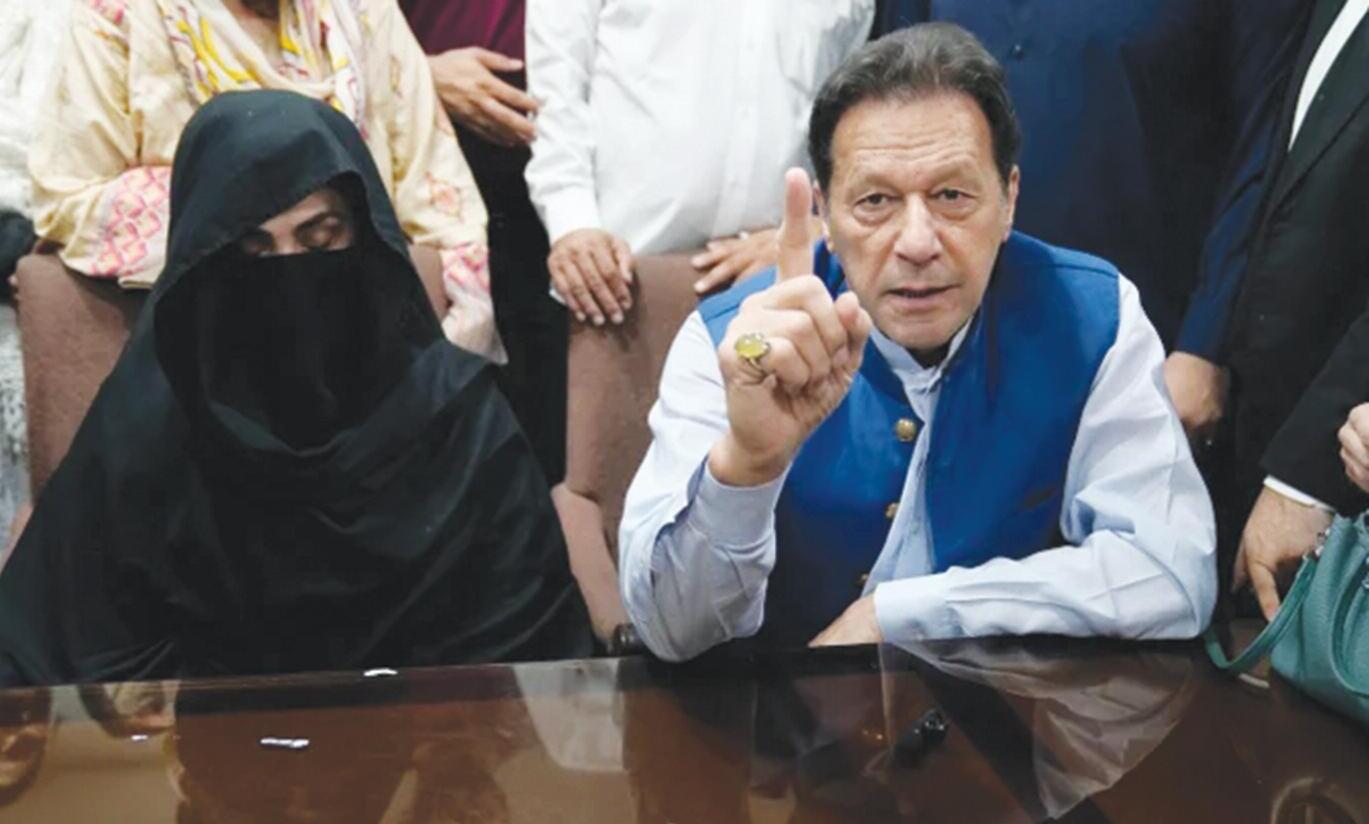
The ar ticle also describes Bani Gala as a for tress of gatekeeping and fear. Household staff and a former driver recount that access to Imran Khan, flight timings and even the moment a plane could take off often hing ed on BushraÊs approval. What ought to have been decisions governed by security protocols, diplomatic calendars and national urg ency were alleg edly subordinated to the preferences of a pir In political terms, this is not merely eccentricity; it is a distor tion of public office , where national time was bent to the rhythm of private ritual
through Khan s carefully polished clean hands image even those who question the selectivity of Pakistan s accountability system cannot easily ignore the symbolism: the anti-corruption icon ensnared in the very web he claimed to cut The Economist ultimately portrays the PTI less as a modern institutionalised party and more as a movement built around a single moral sovereign and his veiled spouse decisions dictated by dreams, omens and personal loyalties rather than internal democracy When, after Khan’s arrest, PTI supporters attacked military sites and national monuments the dissonance became glaring: a party that claims to defend institutions yet mobilises rage against them when its own leader is touched Bushra Bibi herself sits at the nexus of misogyny and myth The vicious personal at-
tacks on her are indefensible and reveal a deep societal sickness Yet that reality does not erase an equally serious problem:
tion For unsettled US allies such as South Korea and Poland, acquiring their own arsenals is no longer out of the question The nuclear taboo is wearing thin The Biden administration believed Vladimir Putin could well follow through on his nuclear threats in Ukraine Donald Trump pulled out of the intermediate-range nuclear forces treaty, which Russia had been violating in his first term In withdrawing from the JCPOA nuclear deal with Iran in 2018 and bombing Iran s nuclear facilities this year though it did not have an active weapons programme, he told potential adversaries that the best strategy is North Korea’s: arm yourself as soon as you can China was content with a relatively modest arsenal for decades after it acquired the bomb; its breakneck expansion reflects its growing global might, but its efforts ramped up after Mr Trump was first elected Mr Trump’s confusing comments on nuclear tests (prompting counter-threats from Mr Putin) appear to reflect his misunderstanding of Russian systems tests which though alarming, do not breach the de facto moratorium A resumption –the US last detonated a warhead in 1992 – would probably be more useful to adversaries than to the US itself It would also strengthen suspicions that non-proliferation is window dressing for the maintenance of the nuclear monopoly of a few states, rather than a serious commitment for the sake of humanity Mr Trump said to truly fear nuclear war should instead challenge Mr Putin to make good on his proposal of a one-year extension of New Start treaty limits and revive nonproliferation endeavours by championing the comprehensive test ban treaty The US and China have not ratified it; Russia withdrew ratification A president aspiring to a Nobel peace prize could set an example that is sorely needed
Th e Constitution of Bangladesh provides no scope for an Islamic state or a Sharia-based governance system, as it is fundamentally founded on secular principles Bangladesh Jamaat-e-Islami too operates entirely within this secular constitutional framework Therefore no political party in the country can be legally or structurally described as an Islamic party To interpret their electoral or political victories as the triumph of Islam is merely an attempt to instrumentalise religion for political gain Such a process runs contrary to the spirit of the Qur an and the hadith ultimately harming both society and the state In truth, these victories represent the success of the secular order, as they are achieved through democratic means embedded within that very system
The contemporary Jamaat-e-Islami has followed precisely the path that its founder Abul A la Maududi once condemned Maududi s theoretical framework called for a radical transformative Islamism rooted in revolutionary change Yet his followers gradually gravitated toward a form of soft Islamism Just as militant hindutva empowered the BJP and forced the Indian National Congress into adopting a ‘soft hindutva’ posture Maududi’s own hardline vision indirectly paved the way for the emergence of soft Islamism in South Asia Consequently in the absence of legal philosophy and moral vision, Islamic politics has been reduced to ritualised repetition Without justice, ethical integrity, and spiritual balance, Islamic political movements become mere slogans devoid of substance
A comparative analysis of Islamic law and secular law reveals that Islamic principles aim to establish justice and collective welfare while secular law is grounded in humanistic rationality however, when political interests overshadow both, any ideology religious or secular loses its moral essence In Jamaat’s case the lack of philosophical depth and legal reasoning has turned its activism into a repetitive pursuit of political power rather than an expression of divine justice Jamaat s political behaviour also reflects colonial and imperial residues Their position during the 1971 Liberation War, repeated instances of violence against minorities alleged corruption in recruitment and administration the domination of mosques madrasas and universities and their antagonism toward various schools of Islamic thought all point to a quest for social control under a religious veneer Behind the façade of faith lies a deep political and economic ambition In August 2024 Bangladesh witnessed widespread violence against hindu and Ahmadiyya communities Attacks occurred across twentyseven districts, destroying temples, homes, and businesses, and leaving at least one person dead Between August and November, 174 incidents of communal violence resulted in twenty-three
deaths These assaults stemmed from political instability and the exploitation of sectarian propaganda Following the 2014 general election, supporters of Jamaat-e-Islami and the Bangladesh Nationalist Party (BNP) attacked hindu households in several districts Seven members of the two parties were later arrested The National human Rights Commission blamed the government for its failure to protect minorities but noted that the violence was politically motivated Such acts of persecution contradict the secular spirit of the Constitution human Rights Watch and other organisations have repeatedly accused Jamaat and its supporters of human rights abuses Reports from the Bangladesh hindu Buddhist Christian Unity Council, the National human Rights Commission, and local media confirm that a systematic nexus exists between religious rhetoric and political violence During the 98th Annual Jalsa in Panchagarh even after securing legal permission Ahmadiyya homes were looted and torched A young engineer, Zahid hasan, was killed, and over seventy others were injured The prolonged inaction of law enforcement provoked public outrage The Ahmadiyya community rightly asserted that such violence is anti-Islamic Their differences with non-Ahmadi Muslims lie merely in theological interpretation particularly regarding the advent of the Mahdi This violence therefore was not born of faith but of the political manipulation of religious division
It was precisely for this reason that Maulana Bhashani once described Jamaat-e-Islami as the ‘Islamic edition of fascism ’ his observation captured the essential nature of Jamaat s political conduct: a religion wrapped around the pursuit of power A movement that lacks self-criticism cannot call a nation toward the path of Islam
One that partakes in the same Western- and Indian-influenced politics it denounces cannot remain loyal to Islam’s universal moral vision
Scholars Ali Riaz and Shafi Md Mostofa have offered significant insights into Jamaat s political evolution Riaz argues that Jamaat should be understood as a political organisation seeking to rehabilitate itself from the stigma of 1971 war crimes by rebranding as a ‘politically excluded actor ’ he shows that Jamaat’s invocation of religion is strategic rather than spiritual Mostofa on the other hand observes that Bangladesh s civil society and media are deeply anchored in secular modernity, which limits Jamaat s influence he further explains that modern state policies are shaped by three primary elements: the political sentiments of the majority, Western liberal values and the narrative-building process aimed at delegitimising opponents Together their analyses reveal that Jamaat s achievements are not religious triumphs but the products of political strategy, electoral coalitionbuilding, and sociopolitical context Just as the Awami League has turned the Liberation War into a political symbol Jamaat has instrumentalised Islam But the question remains: has Jamaat ever truly challenged the democratic order? Only when it does so perhaps in a

Japan announces $3.5m grant to help Pakistan secure over 24m oral polio vaccine doses
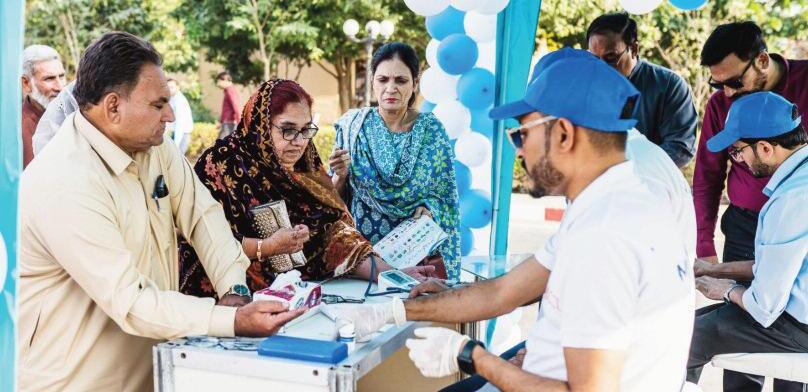
President X i urges breaking new ground in advancing rule of law in C hina
President Xi Jinping has called for upholding the unity between Party leadership, the running of the country by the people and law-based governance and making concerted efforts to break new ground in advancing the rule of law in China
Xi, also general secretary of the Communist Party of China (CPC) Central Committee and chairman of the Central Military Commission made the remarks in a recent instruction on comprehensively promoting the rule of law Xi s instruction was conveyed at the central conference on work related to law-based governance held in Beijing on Monday and Tuesday Xi emphasized that a framework for promoting law-based governance on all fronts has basically taken shape, the system of socialist rule of law with Chinese characteristics continues to improve, and the path of socialist rule of law with Chinese characteristics is becoming broader Xi underscored the need to fully implement the thought on socialist rule of law with Chinese characteristics for the new era, and enhance the
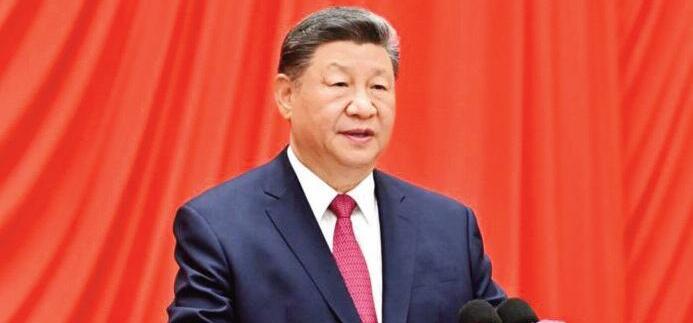
coordination between rule of law and reform, development and stability
He also highlighted the necessity of safeguarding and promoting social fairness and justice and comprehensively advancing rule of law in all aspects of the country s work The central conference on work related to law-based governance is held in Beijing, China /Xinhua he central conference on work related to law-based governance is held in Beijing China Zhao Leji chairman of the Standing Committee of the National People s Congress attended and addressed the meeting Vice Premier Ding Xuexiang was also present at the meeting and conveyed Xi’s instruction Both Zhao and Ding are mem-
C hina holds consultations with Japan in Beijing, urges withdrawal of wrong ful remarks
Liu Jinsong, director general of the Department of Asian Affairs of the Chinese Ministry of Foreign Affairs, held consul-
ments between China and Japan funda-
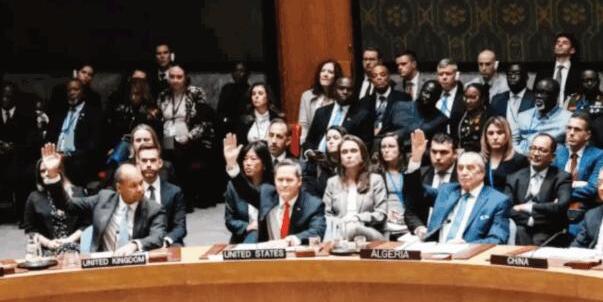
bers of the Standing Committee of the Political Bureau of the CPC Central Committee In his speech, Zhao said Xi’s instruction has charted the course for comprehensively advancing lawbased governance emphasizing that Xi Jinping Thought on the Rule of Law is the guiding philosophy that must be upheld over the long term in comprehensively advancing lawbased governance in the new era Zhao stressed the need to implement the strategic arrangements outlined at the fourth plenary session of the 20th CPC Central Committee and enhance efforts in all aspects of law-based governance to provide a solid legal guarantee for high-quality development


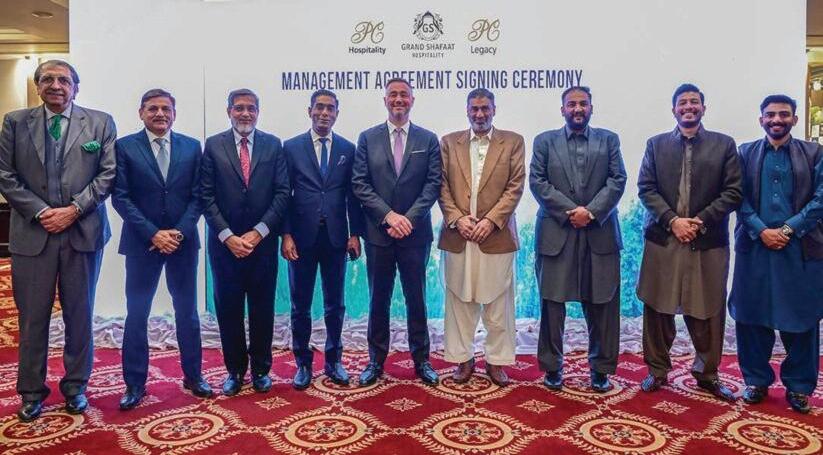
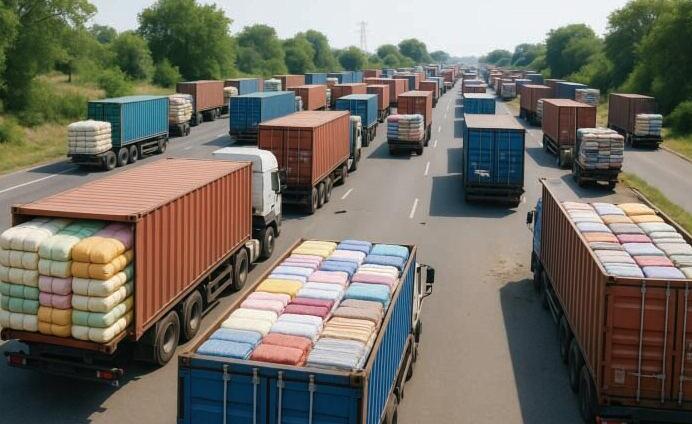
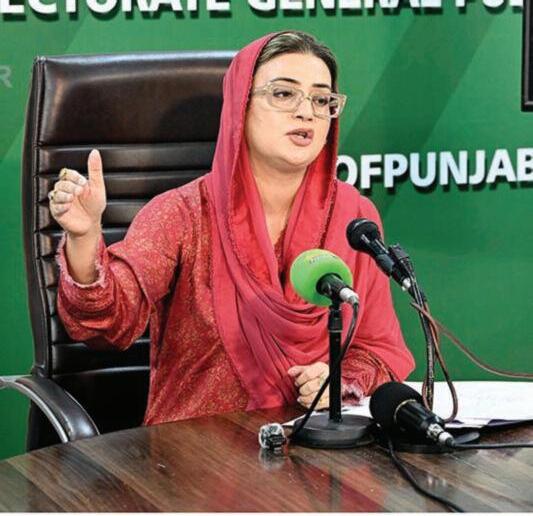
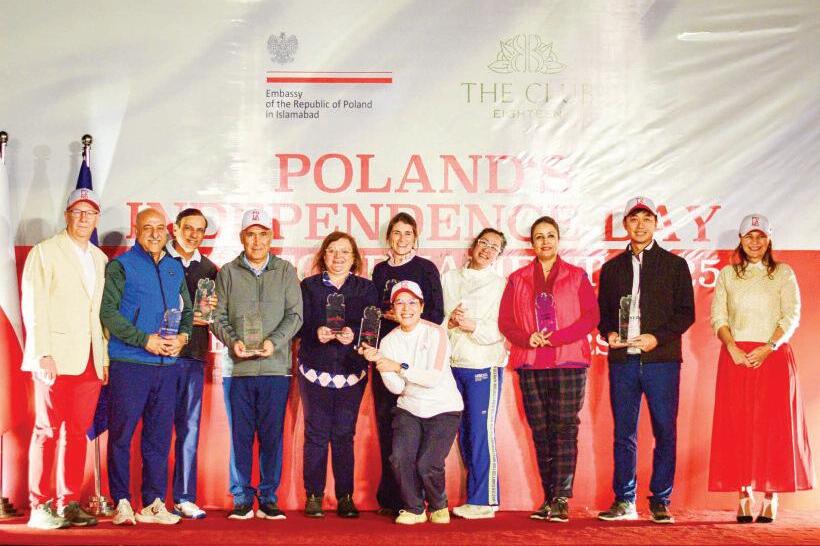
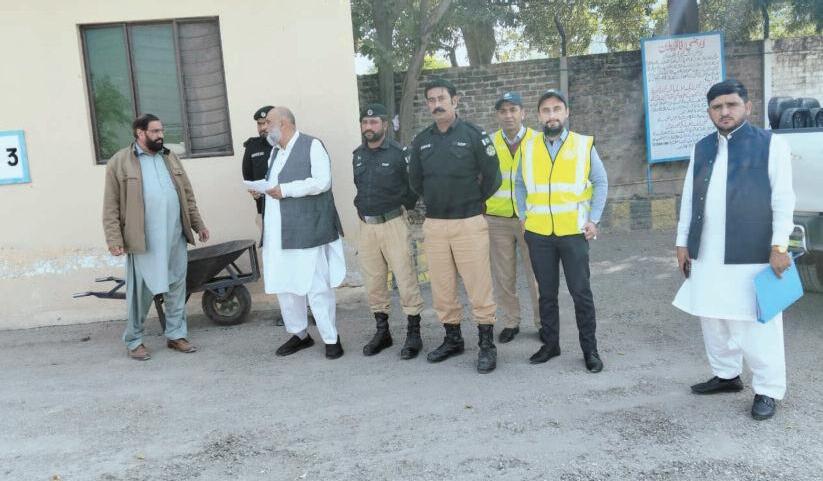





constitutional provisions It said placing election duties on Union Council secretaries violates the law Under the Elections Act 2017 and Local Government Act 2015 the ECP alone is empowered to appoint District Returning Officers, Returning Officers and Assistant Returning Officers Only officers notified by the Commission will conduct the polls, and UC secretaries cannot serve as presiding officers
in a post on X prayed for Qureshi s swift recovery highlighting the former minister s endurance during his imprisonment Shah Mahmood Qureshi sahib
Interior Minister Mohsin Naqvi told Acting US Ambassador Natalie Baker on Tuesday that Pakistan could not pursue any form of political dialogue while facing orchestrated militant violence as he briefed her on the suicide blast outside a district court in Islamabad and the investigations that followed The Nov 11 explosion at the main entrance of the court complex killed a dozen people and left many others injured marking the most serious attack in the capital in several years and underscoring the nationwide spike in militant activity Investigators now believe the group behind the attack operated as part of a wider militant cell with ideological links to the Tehreek-e-Taliban Pakistan
The faction, long at odds with the state and aligned with the Afghan Taliban, has been blamed for repeated assaults across the country Pakistani officials have pointed out in recent months that several attacks have involved individuals or networks operating from Afghan territory Kabul has consistently denied such claims adding to friction between the neighbours
After the meeting, the interior ministry said Naqvi told the US envoy that Pakistan could not “engage in negotiation while facing continued violence,” a reference to the breakdown of talks between Islamabad and Kabul late last month in Istanbul
Discussions collapsed after Pakistan insisted the Afghan authorities take responsibility for militant activity originating from their side of the border, while the Afghan delegation refused to provide written commitments on preventing cross-border attacks
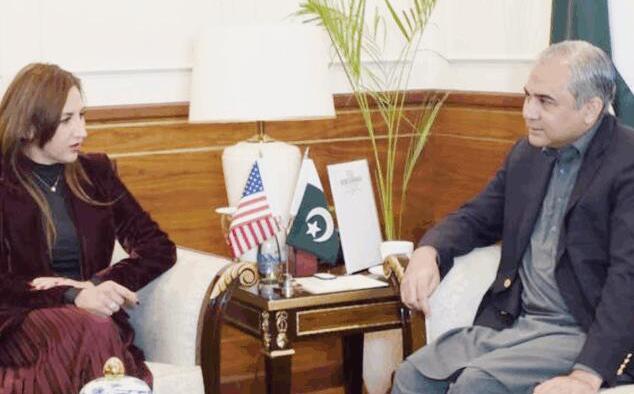
Although a formal ceasefire along the frontier technically remains in effect both sides have expressed frustration with one another since the Taliban takeover of Kabul in 2021 Pakistani officials say the atmosphere has grown increasingly strained Naqvi briefed Baker on what investigators had uncovered so far He said the attackers aimed to enter the court premises but were stopped at the outer security layer preventing an even larger casualty toll He said all individuals linked to planning logistics and facilitation had been tracked and detained
According to the interior ministry, Baker condemned the bombing, expressed condolences for the victims and acknowledged Pakistan’s long-running losses in the fight against terrorism For Washington, the renewed violence and the collapse of the Istanbul discussions add complexity to a region where the US maintains limited operational presence but continues to encourage counter-terror coordination
